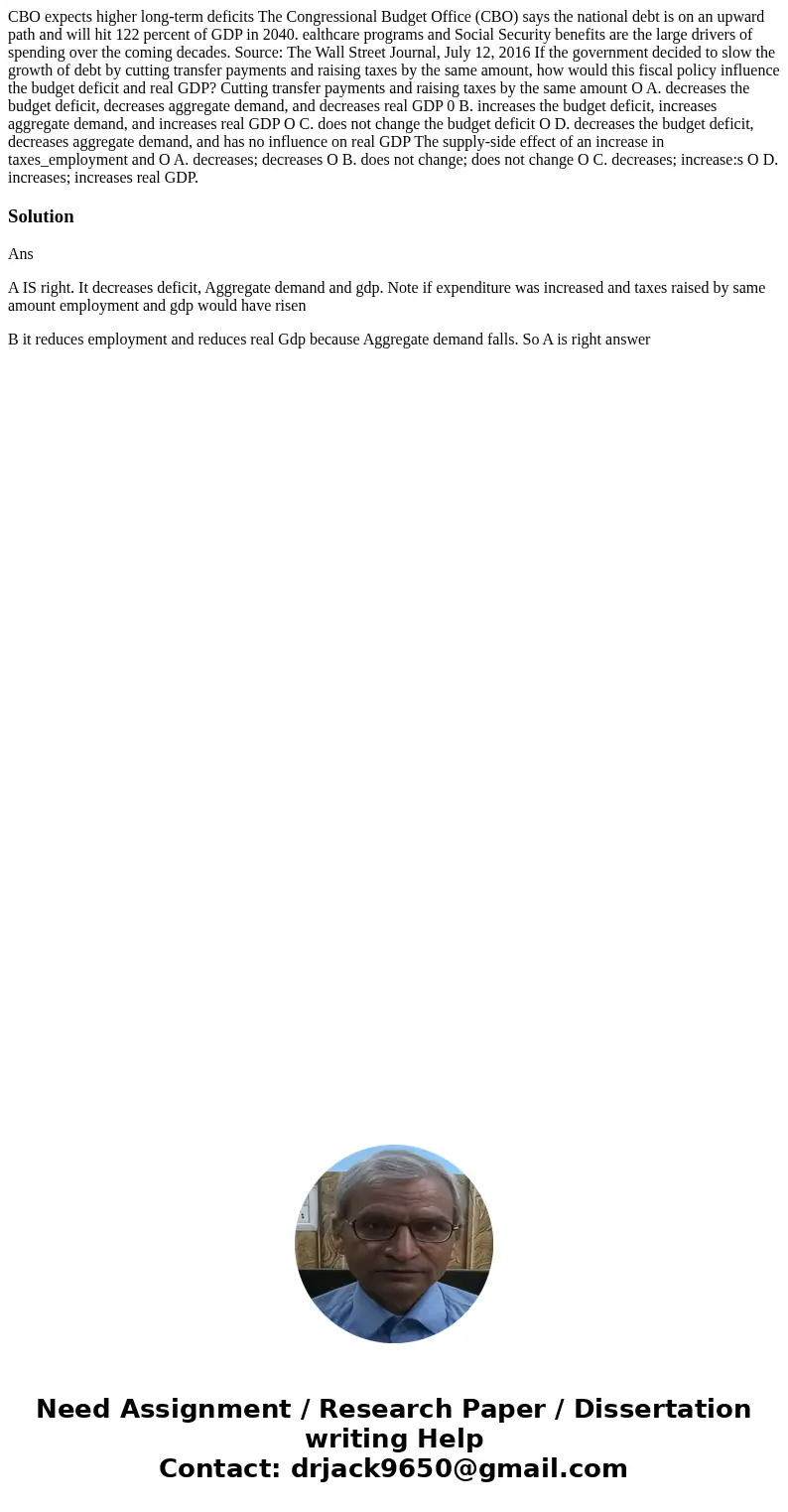CBO expects higher longterm deficits The Congressional Budge
CBO expects higher long-term deficits The Congressional Budget Office (CBO) says the national debt is on an upward path and will hit 122 percent of GDP in 2040. ealthcare programs and Social Security benefits are the large drivers of spending over the coming decades. Source: The Wall Street Journal, July 12, 2016 If the government decided to slow the growth of debt by cutting transfer payments and raising taxes by the same amount, how would this fiscal policy influence the budget deficit and real GDP? Cutting transfer payments and raising taxes by the same amount O A. decreases the budget deficit, decreases aggregate demand, and decreases real GDP 0 B. increases the budget deficit, increases aggregate demand, and increases real GDP O C. does not change the budget deficit O D. decreases the budget deficit, decreases aggregate demand, and has no influence on real GDP The supply-side effect of an increase in taxes_employment and O A. decreases; decreases O B. does not change; does not change O C. decreases; increase:s O D. increases; increases real GDP. 
Solution
Ans
A IS right. It decreases deficit, Aggregate demand and gdp. Note if expenditure was increased and taxes raised by same amount employment and gdp would have risen
B it reduces employment and reduces real Gdp because Aggregate demand falls. So A is right answer

 Homework Sourse
Homework Sourse